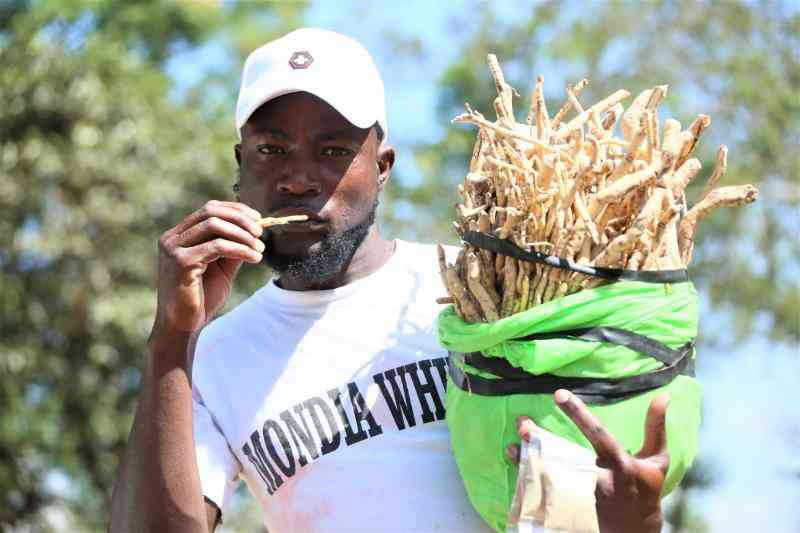×
The Standard e-Paper
Kenya’s Boldest Voice

Milton Ongaya hawks stems of white ginger commonly known as ''Mukombero'' along Kenyatta Road in Nyeri Town, its popular among his customer due to it medicinal value. Ongaya sources his commodity from Kakamega County. [Kibata Kihu, Standard]
Researchers from various universities have embarked on an ambitious plan to save the Mukombero (Mondia Whitei) herb from extinction.







